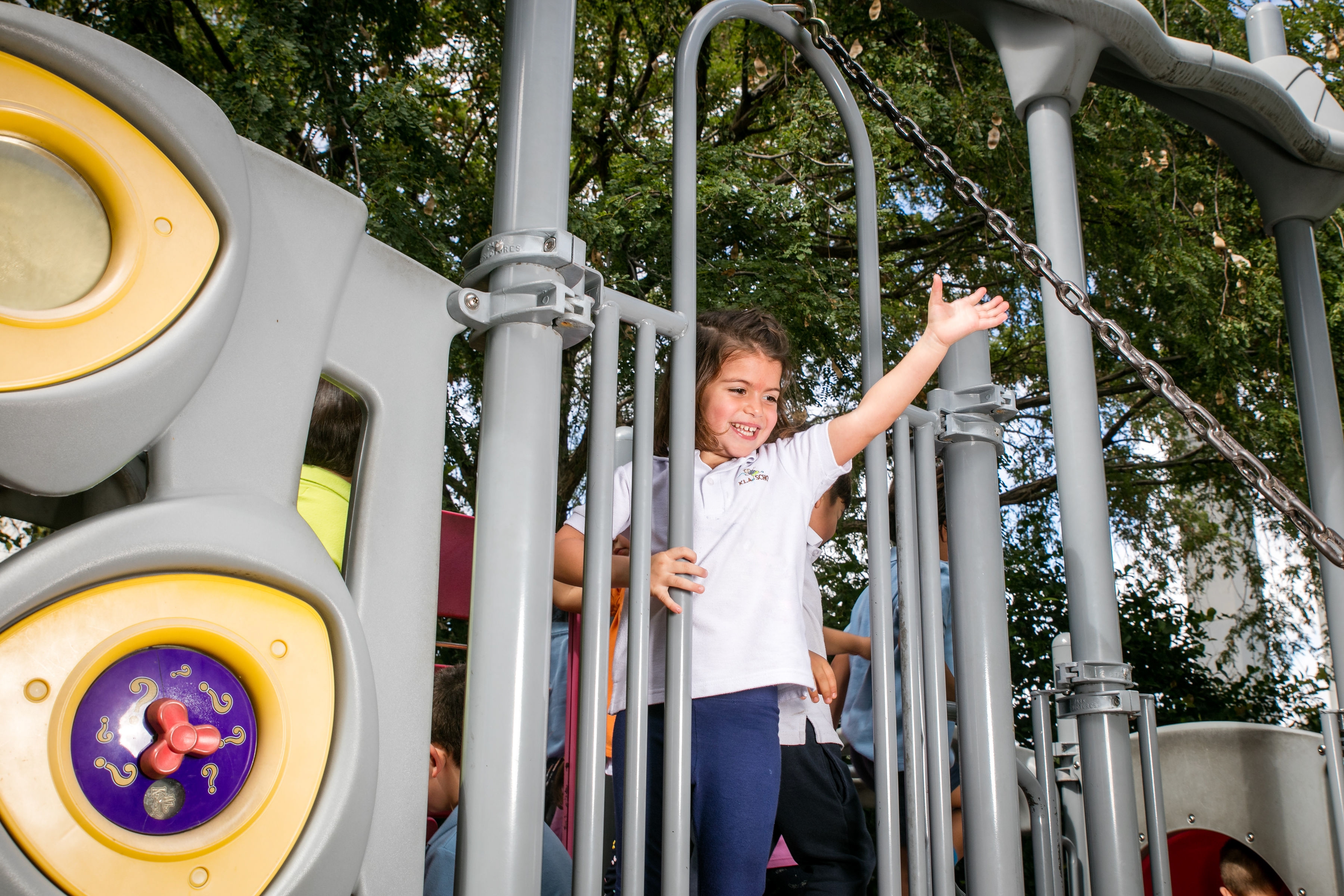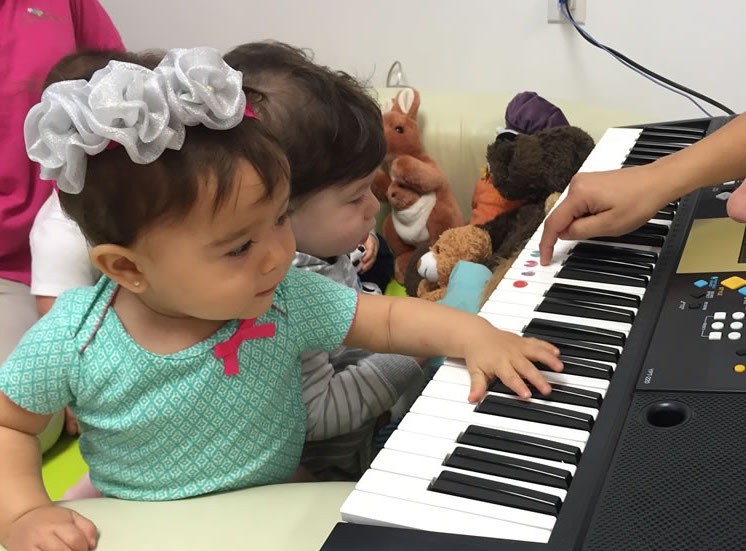Educational Benefits of Music
Topics: Child Development
Age Range: Preschool
Whether it’s dancing, singing, or playing along, children love music. More than just a fun activity, music has several educational benefits as well. Here are four educational benefits of music for children.
Music improves math skills
Pattern recognition and counting are fundamental building blocks of math, and music helps children learn these concepts. Because songs feature repeating beats, rhythm, and time signatures, children gain early exposure to pattern recognition and fractions while listening and even playing along.
Music helps with language processing
In addition to pattern recognition as a fundamental math skill, understanding patterns of sounds and words also help in language development. According to Susan Hallam of the University of London’s Institute of Education, speech and music share a number of processing systems in the brain. Music helps children to recognize and repeat words, and understand their meaning.
Music improves memory
Traditional music education relies on memorizing notes, lyrics, and the correct way to read music. But even at a basic level, music can help children to recall information, as it’s easily stored in our memories. In addition, music improves working memory, used in reasoning and problem-solving. Studies have shown that musicians have better selective focus and can recall tasks easier than non-musicians.
Music encourages the formation of neural connections
According to Dr Eric Rasmussen of Johns Hopkins University, studies have shown that “children involved in music have larger growth of neural activity than people not in music training.” Whether it’s playing an instrument, singing along, or listening to their favorite songs, children who are exposed to music can see increased formation of neural connections.
Enables learning in other areas
Music is engaging and compelling to children, and they have positive associations with it. Bringing music and its positive associations into other topics such as math or science can increase a child’s information retention and attitude about what they’re learning.
Whether your child is enrolled in official music lessons or just enjoys making up their own songs at home, offering greater exposure to music can help your child learn in a number of ways.

